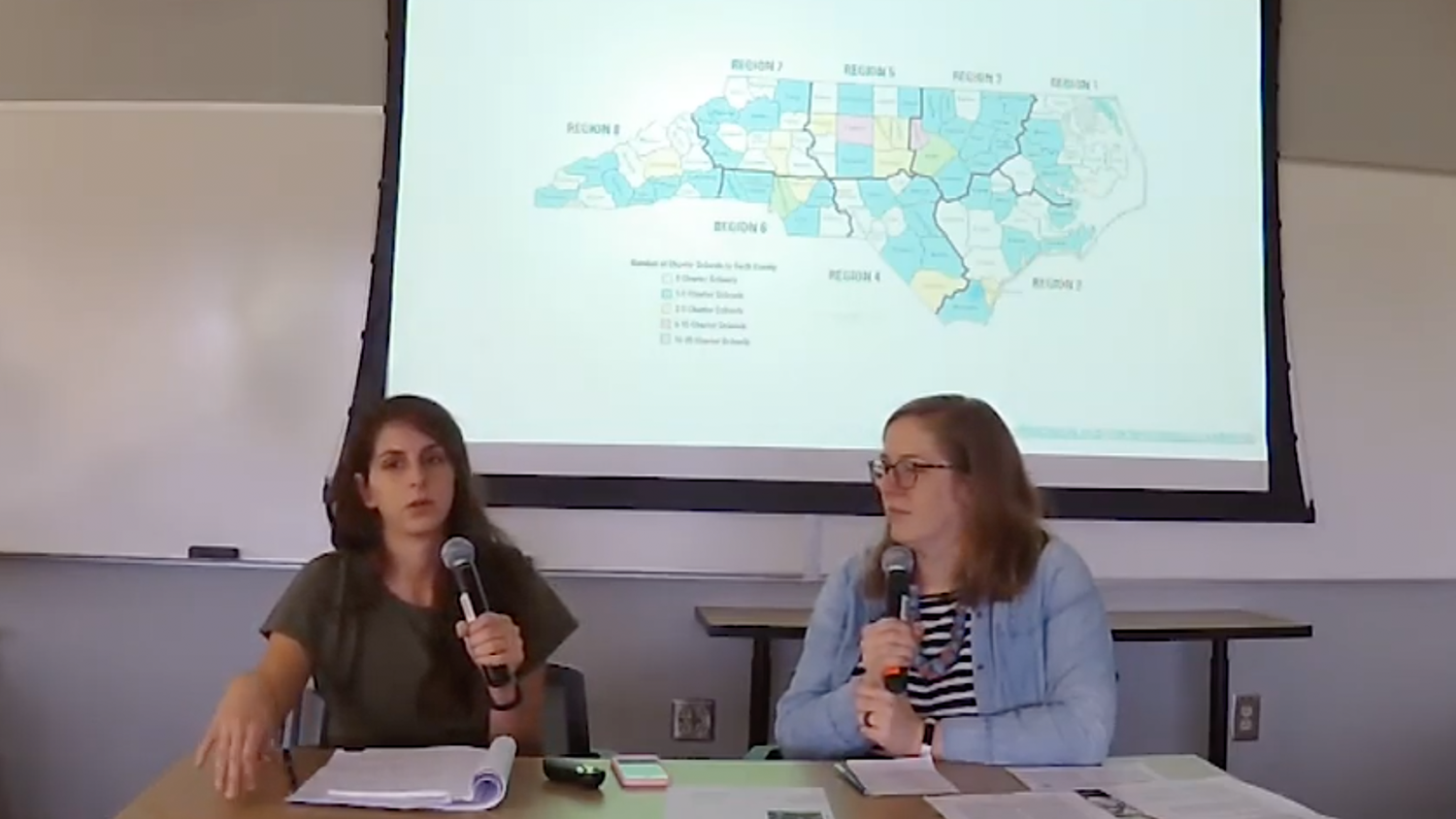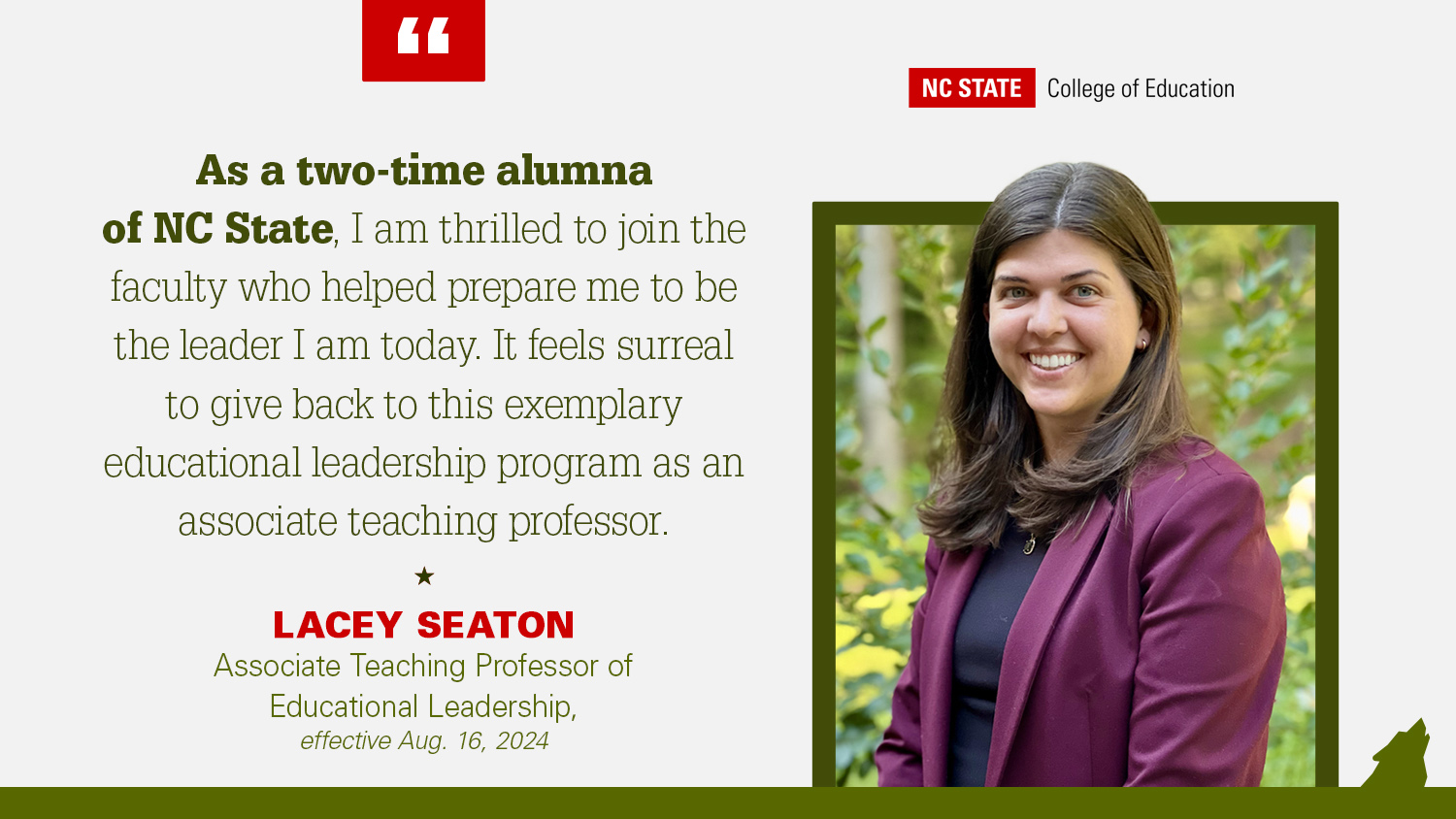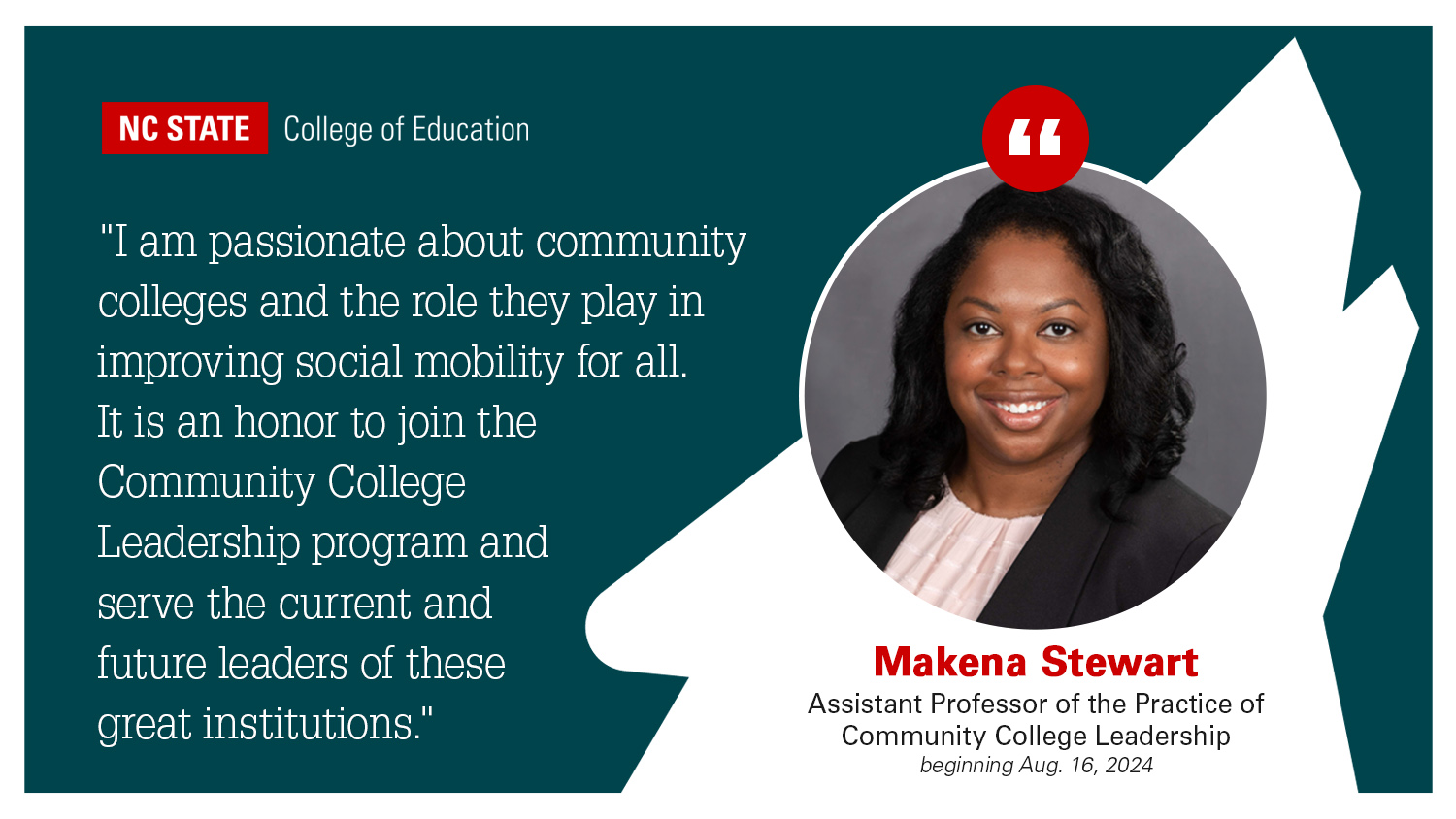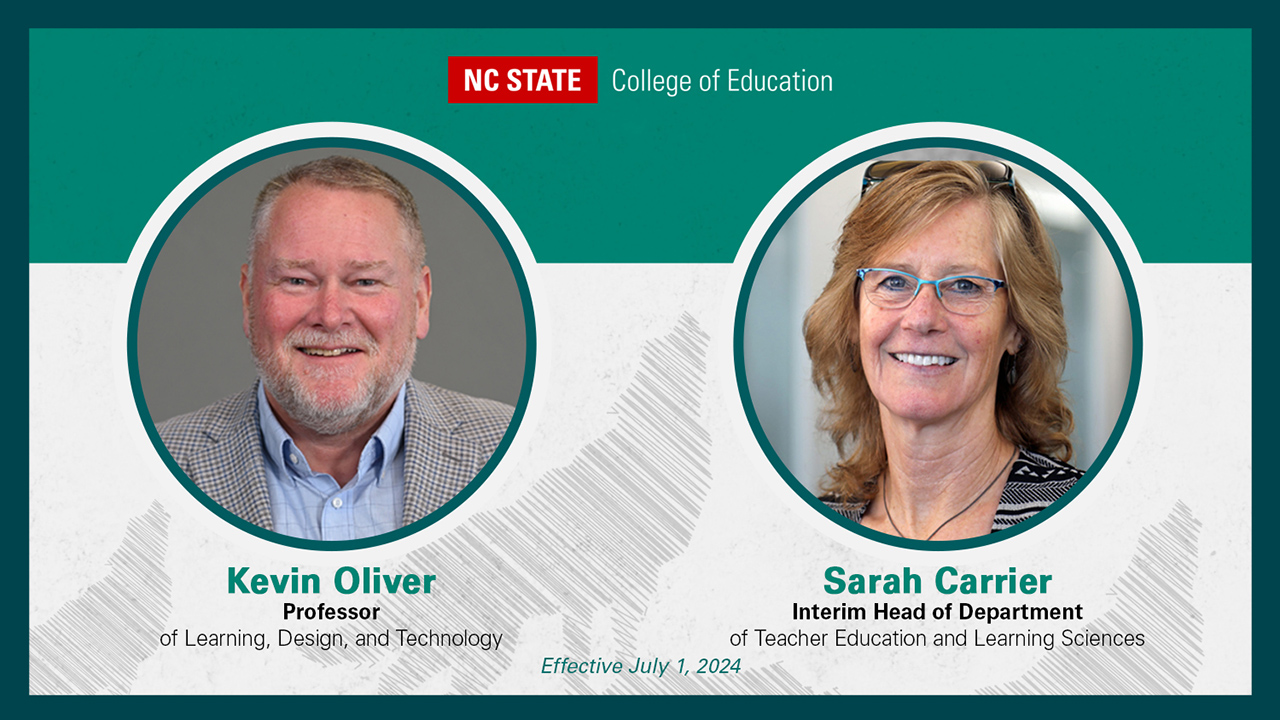College of Education Doctoral Students Share ‘Critical Conversations’ Through Classroom Video Podcast

NC State College of Education doctoral students are sharing their take on important educational issues through a recently released video podcast.
The series was filmed as part of the Diversity and Equity in Schools and Communities graduate course, which gave different students weekly opportunities to lead a discussion on a course-related topic, pose questions to the class and develop dialogue about a variety of issues.
“Our students talk about some sensitive things, so we wanted to do it in a format where students could take ownership of the conversation, but it’s still a relaxed environment,” said Associate Professor Cameron Denson, Ph.D., who teaches the course.
The format was introduced for the first time in the class in the Fall 2019 semester and was developed by Denson and his teaching assistant, Mwenda Kudumu. The pair was looking for ways to engage students that would go beyond traditional online discussion forums and create something that could be shared with people beyond the classroom.
The end result, Kudumu said, was that students were able to explore the topics more in-depth both through the discussion model as well as through the research they did to lead the lesson when it was their week to present.
“When you start teaching about something instead of just listening to someone talk about it, you’re more engaged with the topic. You have to do your research and think about how you feel about the issue,” Kudumu said.
The class gave Chelsea Smith ‘22PHD an opportunity to further explore issues surrounding diversity in education, a topic she has been interested in throughout her career. She led a classroom discussion on culturally responsive pedagogy and teaching practices, focusing on why those experiences are important for students and educators.
Smith said she appreciated that the face-to-face classroom conversations, which typically lasted between 20 and 30 minutes, gave students a chance to bring personality into the discussions in a way that would not have been possible through an online forum.
Gary Wright ‘21PHD, who led a discussion on education debt and achievement gaps among groups of students, said that one of the most interesting parts of the experience was seeing the ways he and his partner identified different parts of the research as important or valuable.
Listening to his classmates take different perspectives on the research articles shared in relation to each weekly topic was able to give him insight into who they will all be as researchers.
“Being able to get the feel of who my future colleagues are and what their expertise is was something that really stood out to me and seemed really cool,” he said.
Kudumu said that she hopes the release of the “Critical Conversations” podcast might inspire other graduate or undergraduate programs to utilize a similar format to address important issues in the classroom. As a student, Smith said that the format could be productive because it can help students to focus on content rather than on just completing an assignment.
“It was about engaging in meaningful conversations. It was very empowering to me because the shift in the intended outcome was to foster conversation, not get a good grade. I think that can do so much for future researchers and students,” Smith said.
The “Critical Conversation” videos will be released weekly online with the hope they reach people who might be interested in the topic, but are not as familiar with the academic literature surrounding the issue.
“I really hope that the educators and even students who are in Ph.D. programs like us are able to listen to the information and look at it from a new perspective and potentially utilize some of the experiences,” Kudumu said.
- Categories:


